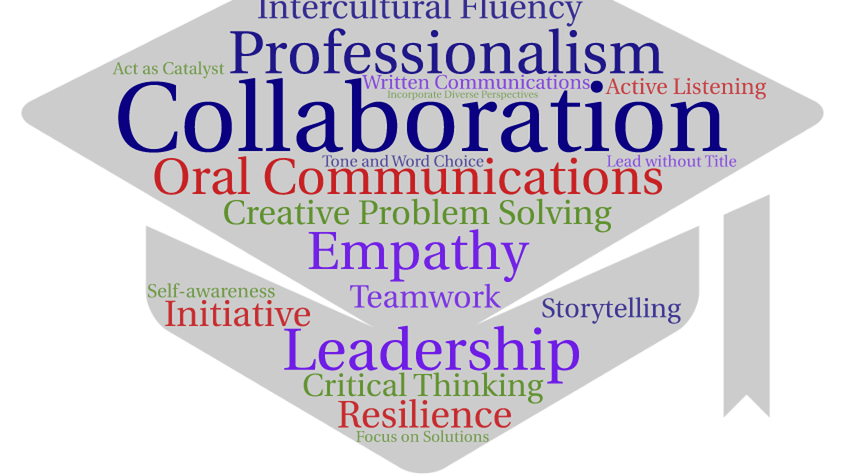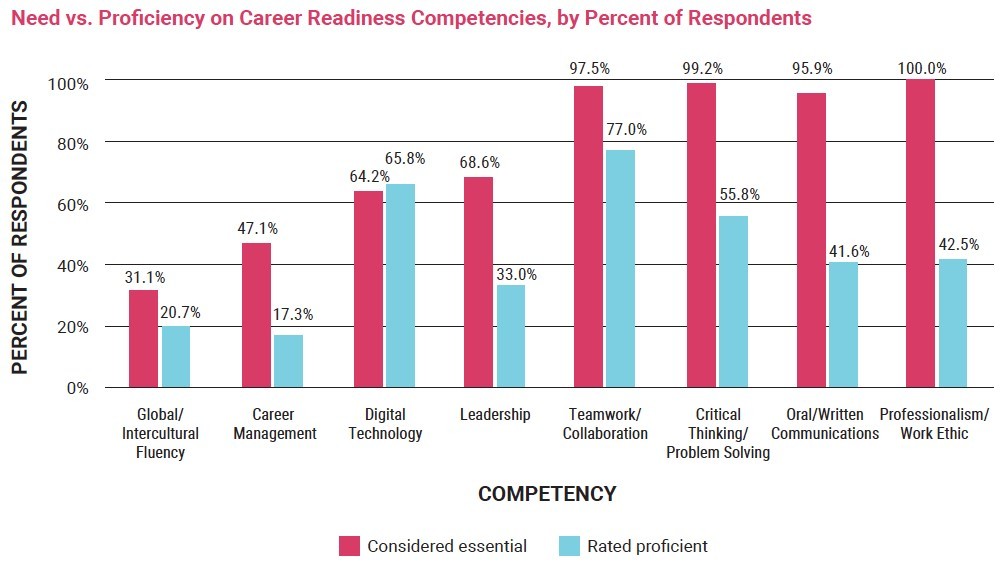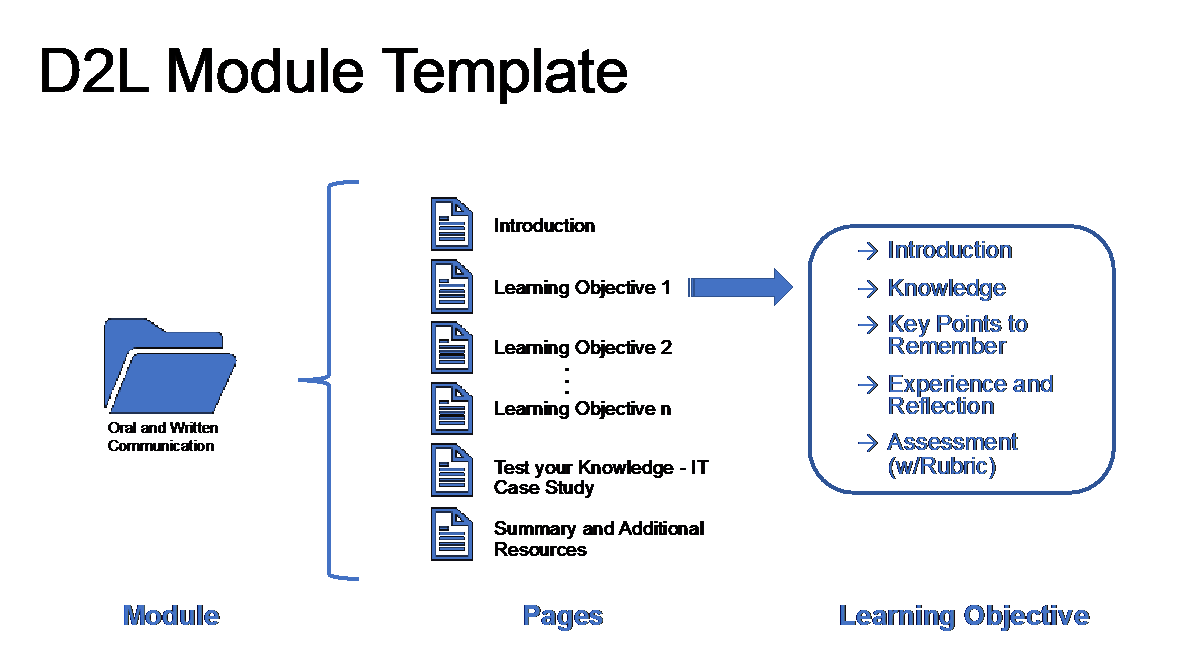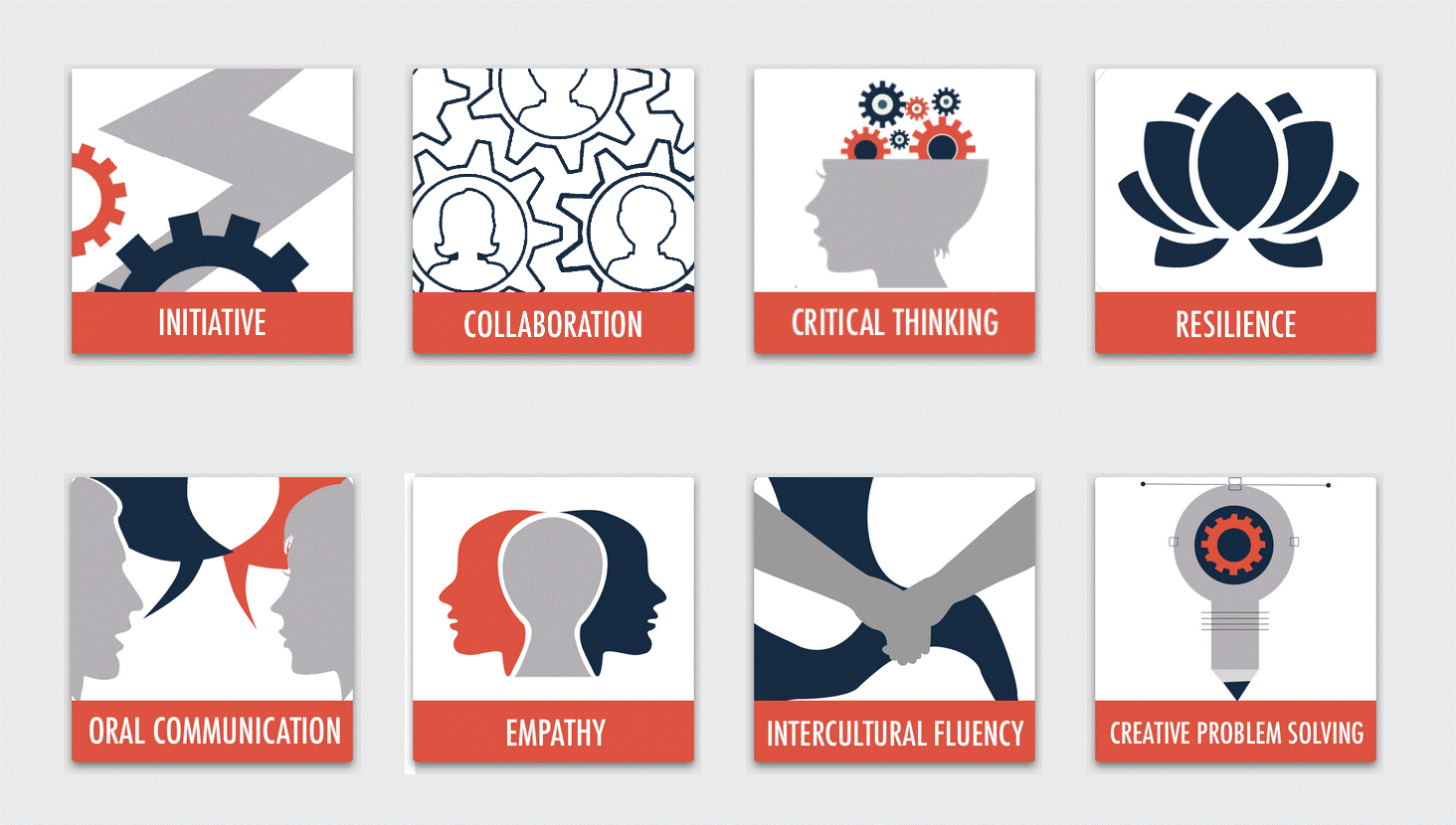
New D2L Modules for Career Readiness … Coming Soon to a Campus Near You
The Minnesota State IT Center of Excellence has heard from numerous employers that graduates must possess both technical skills and “career readiness” skills to be successful in their jobs. Research continues to show that employers are sometimes underwhelmed by students’ career readiness, often lacking critical skills such as teamwork, communications and leadership.

In the summer of 2018, COE, in partnership with four MN State faculty1, developed eight interactive case studies, designed to teach and assess student knowledge of the National Association of Colleges and Employers (NACE) career readiness competencies. The deployment of these case studies was successful at one Metropolitan State University course this past fall, and student reaction to them was very positive.
Stemming from that work, and through numerous conversations with IT and computer science faculty, COE has now developed three new Modules, built 100% in Desire2Learn (D2L), focused on teaching and assessing the important skills of:
- Oral and Written Communications
- Collaboration and Teamwork
- Initiative and Leadership
The new Modules were developed with busy faculty in mind, and their already packed courses of mostly technical content. We have chosen to build the Modules 100% in D2L, to enable ease-of-adoption into Courses, and to also give students a cohesive online user experience with the rest of their classes at MN State. We also developed the Modules independent of each other, so a faculty member can take one, two or all of them into their Course. Being in D2L also means faculty can edit a Module’s content, allowing creative freedom to better-tie to their style and course.
Overview of the Modules
One of our goals while developing the Modules was to follow a standard template, giving them a consistent look and feel. Each Module is divided into 4 or 5 Learning Objectives, with each Learning Objective consisting of sections for content, exercises and assessments.

Additionally, each Module adheres to certain guidelines, providing the following core components to faculty and students:
- Definitions of each Career Readiness competency and associated sub-competencies
- Pre-curated literature and videos that teach students about the competencies
- Experiential exercises for students to practice the Career Readiness skills, be that individually, in small groups, or in the classroom
- Exercises and case studies based on real-life IT and CS workplace scenarios, aimed at challenging students to prove their competence in the skills, including rubrics for faculty to use when assessing student performance
Each Module is built to encapsulate 8-12 hours of work for a student, and given that they’re native to D2L, faculty can determine if-and-how to incorporate the work into the Course’s gradebook.
Module Content Sourced from Education Design Lab
In designing and defining the Modules, we sought to find existing examples of curriculum that could quickly be put into use, rather than reinventing the wheel. One source of content that was particularly strong was from Education Design Lab, and their 21st Century Skills Badges. Not only did the Badges closely tie to the eight NACE career readiness competencies, but the completeness of the content and thoughtfulness of the assessments made leveraging the Badges an easy choice.

The three new Modules incorporate the Badges’ competency and sub-competency definitions, and most of the exercises and assessments come from Education Design Lab. However, in some cases, the content from Education Design Lab has been altered to apply better to an IT or CS student, with the real-life scenarios and exercises representing technical career scenarios.
Choosing Education Design Lab’s 21st Century Skills Badges as our primary source of content puts Minnesota State in good company, given that over 300 other 2- and 4-year colleges across the world have signed up to leverage the Lab’s work (which is free to use, if certain guidelines are followed). We also can contribute to their growing body of tools, which can then be shared across their other partner schools.
Module Rollout in 2019 … and How You Can Help
While it’s very exciting to see these Modules complete, we know they need hardening through use with faculty and students in the classroom. We are fortunate to have three faculty members piloting the Modules in their courses this spring, and we will work closely with them and their students to understand what works, and what can be improved.
Timing-wise, the goal is to release updated versions of the Modules in May 2019, in concert with the New Directions in IT Education Conference (May 15-17). From there, hopefully dozens of faculty members will adopt the Modules in Fall 2019, impacting 100’s of students in their courses.
Providing Career Readiness curriculum is consistent with our long-term mission, and will continue to be a strategic focus. These three new Modules will likely grow in number, and their content and assessments will continue to evolve as we hear from faculty and students.
We appreciate your support in this endeavor, and if anyone is interested in reviewing the Modules before May and providing feedback, please contact Melissa Rousu.
Footnotes and Other Resources
1The following Minnesota State faculty assisted Dr. Lane in the creation of career readiness curriculum:
- Kristopher Schlieper, PhD, Assistant Professor, IT and Computer Science, Minnesota State, Moorhead
- Tricia Olinger, IT Faculty Member, Rochester Technical and Community College
- Karen LaPlant, IT Faculty Member (retired), Hennepin Technical College
Also see:
- Mixed Signals: Do College Graduates Have the Soft Skills Employers Want?, January 2016
- Education Design Lab’s 21st Century Skills Badging Challenge Featured on PBS NewsHour, February 2017
- Recent Graduates Lack Soft Skills, New Study Reports, August 2018
- Education Design Lab Releases 21st Century Skills Badge Program, April 2018